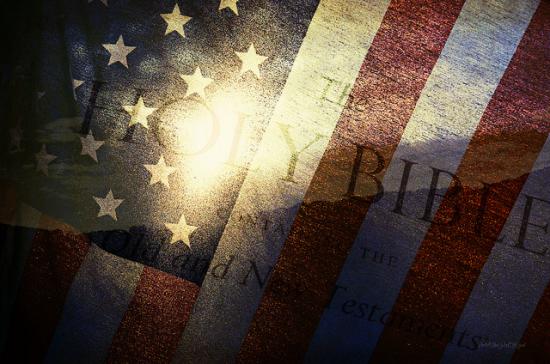
Stop being political!
That’s the comment I often see when someone posts their opinions about current events on social media or brings up war, the economy or social justice in public conversation. People plug their ears and plead for them to stop talking about the things making our world so contentious.
It’s understandable. Right now, American culture is particularly toxic, and politics are at the center of the storm. The political realm runs on power and position, things antithetical to Christian beliefs. Our conversation is so divided and intertwined with party politics that we have trouble speaking the truth at all, let alone speaking it in love.
So, for the sake of the Kingdom, should Christians put down their picket signs and keep their opinions to themselves? Should they focus on church ministry instead of political involvement? Should every political conversation just end with, “Agree to disagree?”
I would argue no. While the tenor, tone and method of our conversation likely needs an overhaul, I don’t think Christians need to lay their political passions to the side. In fact, I think an interest and passion for politics is key to helping the church be salt and light, and bringing the Kingdom of God to the world.
Life is political
The truth is that there isn’t a single part of our life that isn’t political. We may not be running for office, fighting a war or hosting rallies, but at heart politics is about how we do life together as citizens of this nation. How do we ensure that everyone has access to the rights to speak and participate in our democracy? What is our responsibility to others? How do we make it possible for us all to do our work and live together, and what role does the government have in assisting us with that?
That’s politics. It’s not about the man at a podium or in the White House. They are just tools enacting policies, and often we invest too much hope and power in these representatives and their respective parties. Politics, unfortunately, becomes about elections, rallies, scandals and spin, instead of the very real task of acknowledging that we all share land and must figure out the best way to live and thrive together.
Every sphere of our life is affected by politics, whether you consider yourself a political person or not. The quality of the road you take to work — and therefore the risk of damaging your car or getting into an accident — is affected by where your elected representative decides to spend funds. The amount of money you’re able to put in the bank — and, in relation, how much will be available to fix that aforementioned road — is also impacted by that. If you or your child gets sick, how much help are you entitled to? Do you have a right to say whatever you want and believe what you do? Your very ability to access the internet and read this post can be protected or put at risk by people you choose to put into office — or by your refusal to participate. Politics impacts our lives; it’s impossible to not be a political person.
We mistake politics for this other thing we’ve made it, a circus of personality, scandal, greed and power. We have every right to say “don’t take these important issues and make it into that,” and I think part of the problem our country now finds itself in is due to the fact that we desire not to be passionate and engaged, but instead place our hope in men and women who are flawed at best, corrupt at worst. Instead of fighting for change at the ground level and becoming involved in our communities through some sort of political engagement — be it service, protest or petition — we assume that these representatives are our only hope. So we put special stock in political parties and elections because we think they’re the ones who will make any change. Whether it’s because we’re lazy or jaded, I don’t know. But I think the way out of our current situation actually rests on us being more political, not less.
Christians should be engaged
Christians, in particular, should have a high level of political awareness and engagement, although not for the reasons they often do. Evangelicals, of course, are often seen as major political players, a demographic that can make or break a candidate. Much of Barack Obama’s presidential campaign hinged on his ability to connect with people of faith; so did Donald Trump’s. A major reason Hillary Clinton’s campaign failed is because of her refusal to court Christians. Christians, as a demographic, aren’t hurting for political engagement.
But it’s often for the wrong reasons. Evangelical concerns often are rooted in fear, with a desire for self-protection. They are afraid of persecution and want candidates who will protect their rights and practices. One of the ways they often want to be ensured that this happens is by coming against people who don’t share their beliefs. So they cry persecution over baking cakes for gay weddings with the same breath they ask their candidates to kick out refugees and ban Muslims from entering the country. They ask for a travel ban for Islamic immigrants and demand that they have a right to own whatever gun they desire. It’s self-preservation, rooted in fear and power.
And whenever something is rooted in fear or power, it’s not of Christ.
But there is another way of looking at political engagement for Christians, and it’s for living with an eye toward others. Christianity is not a private faith; it’s not a religion of isolation. Rather, it’s a communal, family faith that we enter into together, and we live alongside each other, looking out for one another. And that should extend to the political sphere. Yes, if we genuinely see the government infringing on the rights of Christians, we should speak up and protest. But we should do the same when we see mistreatment of our Muslim and atheist neighbors. We should care about the quality of life for the underrepresented and less-fortunate, and we should be deeply moved and involved in the plight of refugees, orphans and the disenfranchised. Christians are called to push back the results of the fall and see God’s kingdom come here on Earth, which means it’s in our calling to fight for justice (yes, in a sense, Christians should be social justice warriors).
Many of these concerns find their roots not in politics, but in morality and the teachings of Christ. It’s not a political statement to say we need to help the poor; it’s commanded of us. It’s not spin to say we are pro-life; we are people of life, called to defend it. It’s not rhetoric to say that we want our neighbor to have the same opportunities and treatment that we would want for ourselves; those are simply the words of Jesus. It’s not political to care for the needs of others. It’s Christian.
Beautiful diversity
Where politics often comes in is not in the what we’re supposed to do, but the how. We believe we’re supposed to help the poor; does that come through tax cuts or trickle-down economics? We must defend life; do we do it through banning abortion or enacting social measures to reduce it — and what is our responsibility to that life after birth? Our political alignments are formed as we try to best figure out how to live out Gospel in our world, and what it means to do that alongside millions of others, many who don’t share our beliefs.
This is the hard stuff. Because while there is a scriptural basis for our moral questions, there’s no biblical guide for enacting political policy or doing the nitty-gritty work of running a nation. We’re commanded to put our trust in God, not chariots (as Rob Bell says, something that takes on new resonance when your country is the one with chariots) and we’re commanded to pray for and submit to the rulers God has put in place, so long as they are not forcing us to compromise our faith. But there’s no book of the Bible that tells us how to create a tax plan or form social services.
We all have our opinions on how to do this. Some have studied issues deeply and are knowledgeable of politics. Others have blind, down-the-center party loyalty (I’ll address this in the next section). We all have our beliefs about how this works best and, because these issues cut so close to life, we get passionate and heated about them. That’s where our fighting and contention come from. Because there’s no one set political party that the church aligns to — nor should there be — we fight. And because we’re often prideful and self-centered, we refuse to hear out other opinions or consider that we might be wrong. So we divide, and people ask us to stop talking about politics.
But what if the church could learn to talk politics passionately, and with love? What if we realized that none of us have all the right answers and that the liberal might be just as spiritually driven in their political beliefs as the conservative? What if we gathered as a church to discuss issues, hear other sides out and compromise, coming together in unity, but not uniformity, to our politicians, saying “this is how we make change”? If the church could learn to set their disagreements aside and hear people out without trying to make them change their views, what a model that could be to the rest of the country — and the world.
I truly believe the church needs people of all political persuasions. Conservatives, liberals, socialists and libertarians. Heck, maybe an anarchist here and there. Political parties are man-made, which means none of them will ever be fully representative of God. The beauty of the Gospel is seen when we come together, laying aside our deeply held political beliefs, and unite. We need each other to balance each other out and rein each other in. The Church is a gorgeously diverse body that shows God’s beauty in every person and persuasion. Christians should be politically engaged, yes. But they should also be ideologically humble and willing to compromise, learn and admit when they’re wrong.
Keep your allegiance in check
The only way any of this works is if we hold our political allegiances loosely. Republicans and Democrats alike need to be aware that there will come times when their parties fail them and when their ideology is antithetical to the Gospel. At that time, we need to be willing to step away, even if it means casting votes that we don’t want to make and supporting candidates we often wouldn’t give the time of day to — or when it means that our convictions require us to abstain from voting and participation.
Christians are not people of the Constitution; they’re people of the Word. We are grateful to live in this land, but we must always remember it is not our home. We don’t serve a president; we worship a King. We are people of Christ first, Americans much lower down the list. “God bless America” does not appear in Scripture.
Being people of Christ often requires us to be political without reaping power. It asks us to serve, not to enforce, and to love, not to rule. I’m very nervous when Christians have great political power; it is at odds with our faith, and a religion that thrived under oppression and persecution. I don’t know that we need more Christian politicians; but we do need more political Christians (although we also do need Christian politicians who model that faith). And by that, I mean, we need Christians who are so saturated and in love with the Gospel that there politics are fueled by a love for God and for their neighbor. That’s hard to do when so much of our politics is centered on protecting ourselves.













